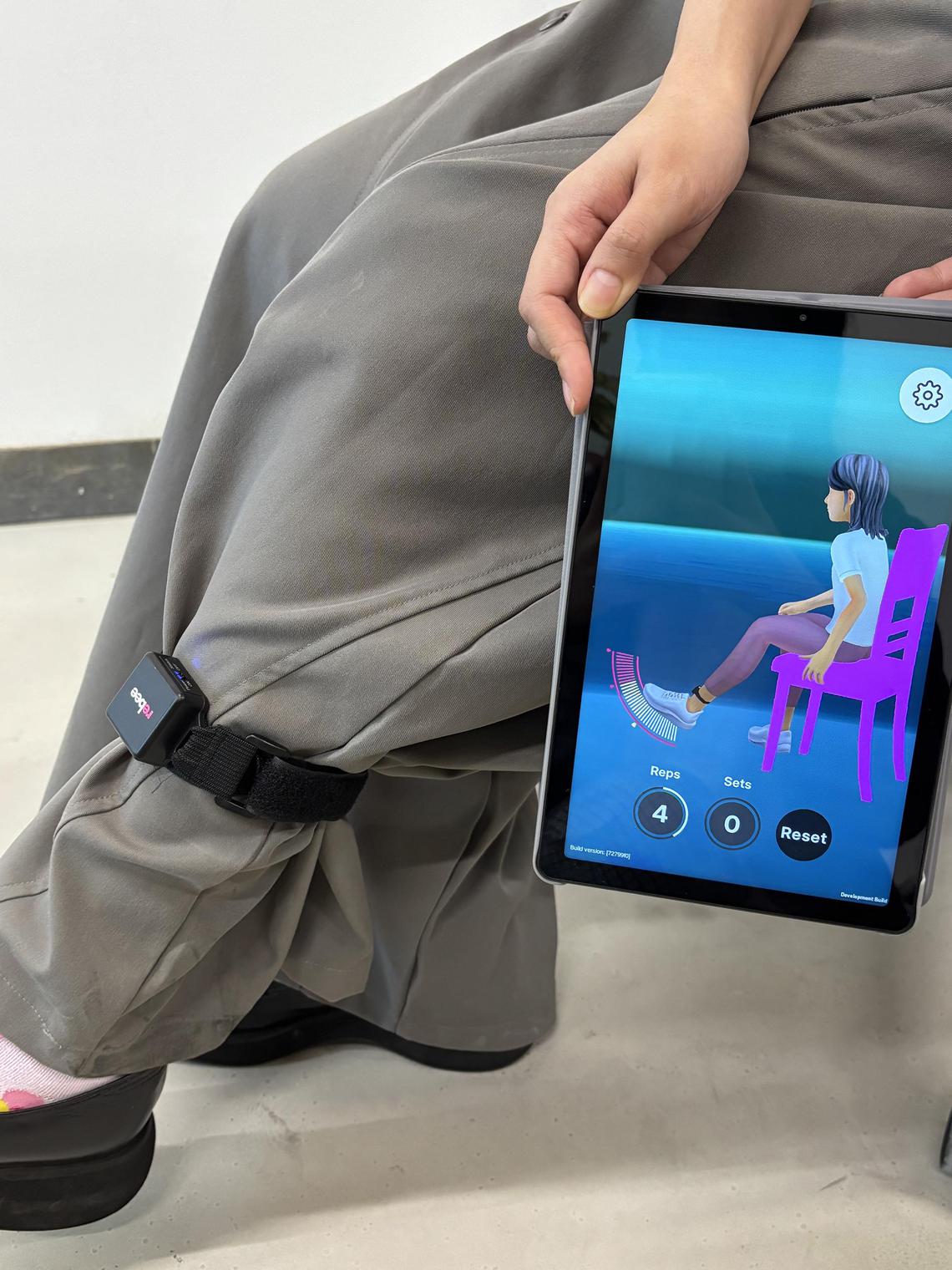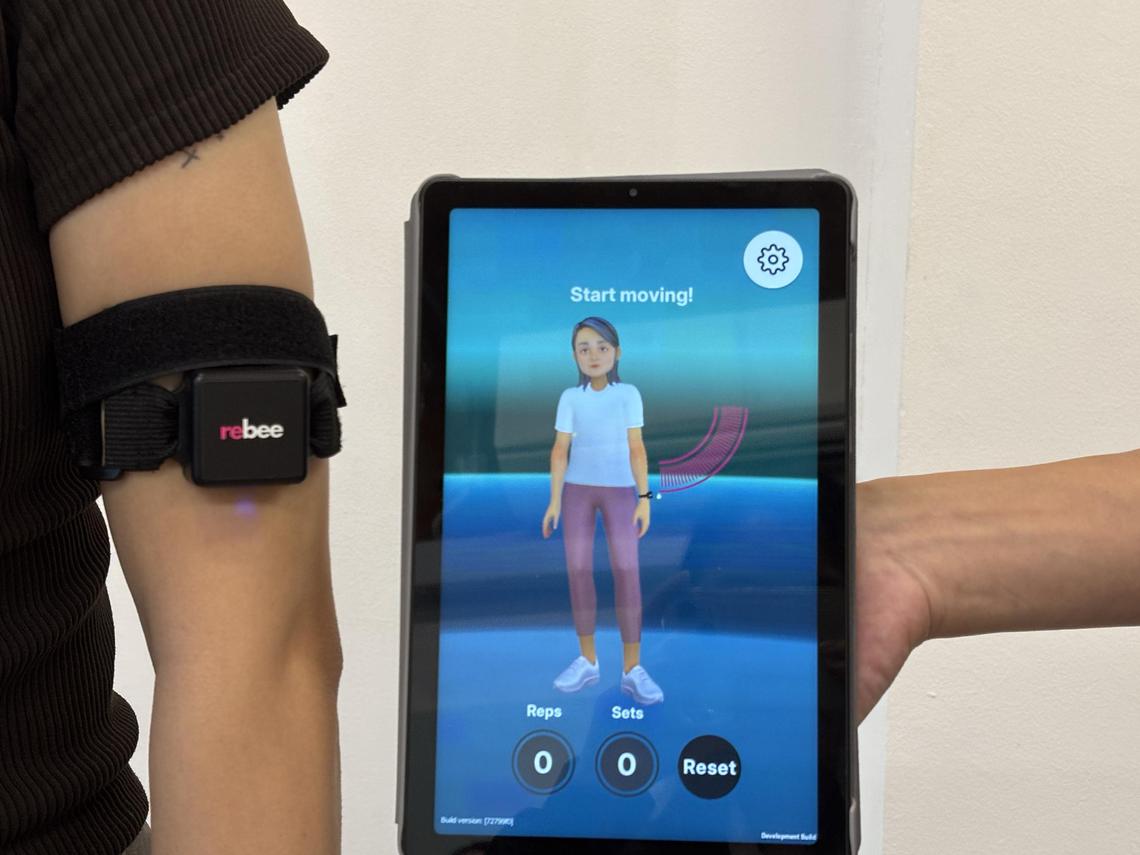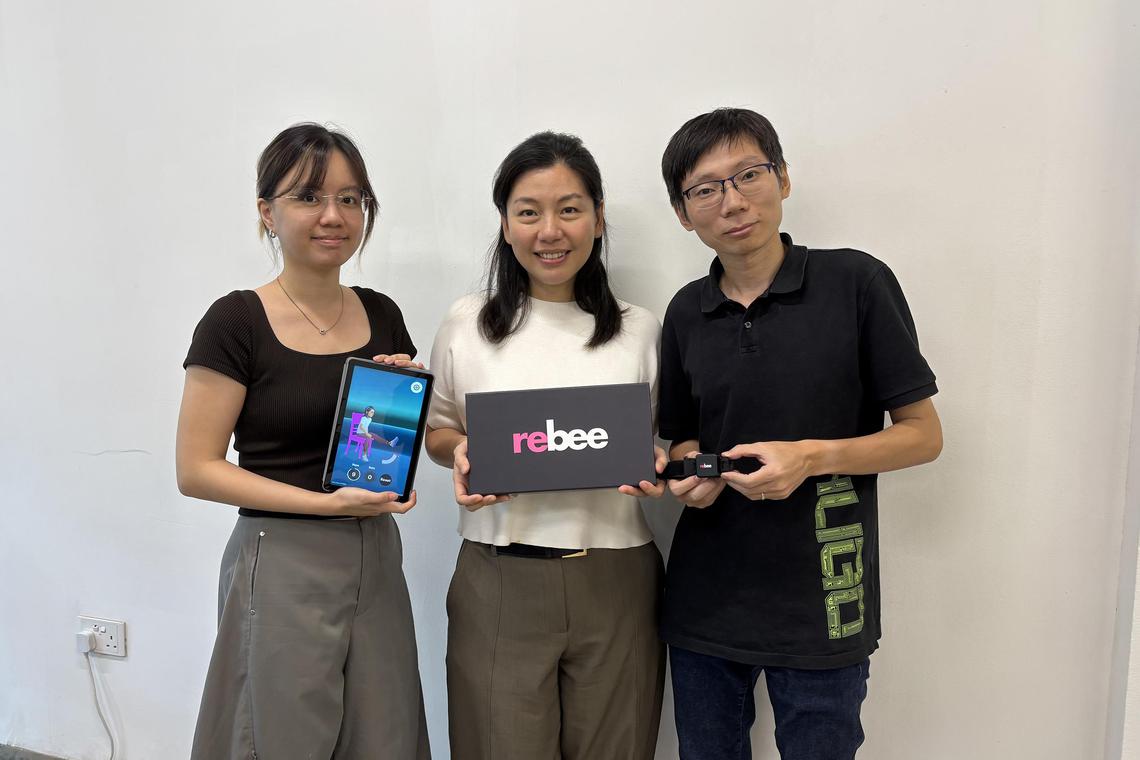SINGAPORE – An avatar mirrors a patient as he repeats a guided knee exercise. A wearable sensor strapped to the patient’s shin transmits real-time data to an app about the degree to which he is able to extend his limb. The app displays the avatar and progress of the exercises.
This app-sensor solution, the development of five-year-old Singapore health technology start-up Rebee, has provided more than 200 physiotherapy exercises to strengthen the knees, shoulders and arms of some 850 patients at nine public hospitals here.
The solution, also called Rebee, is going places, specifically Malaysia and Australia, on the heels of the firm receiving $1.18 million in seed funding in June.
Said Rebee co-founder and chief operating officer Seet Yu Qing: “Australia’s market faces the same issue as Singapore, where there is a lack of allied healthcare workers.”
In Australia, patients in rural areas have to travel long distances to receive physiotherapy, she said.
In Malaysia, where demand is driven by a rapidly ageing population and rising chronic disease, the company is already in talks with private hospitals to deploy its physiotherapy tech.
The investment was led by Singapore venture capital funds Paragon Ventures I and Seeds Capital.
It also included angel funds from Malaysia-based venture capital firm 1337 Capital 1, local investment group LAB9, and local consultancy CSHARK Singapore.

This app-sensor solution, the development of five-year-old Singapore health tech start-up Rebee, has provided more than 200 physiotherapy exercises to strengthen the knees, shoulders and arms of some 850 patients at nine public hospitals here.
ST PHOTO: JOYCE LEE
Developed and launched in 2020 by Ms Seet and Mr Lincoln Dacy, who are both Singapore Management University master of science in innovation students, Rebee supports home-based recovery for patients with musculoskeletal pain or geriatric mobility issues, as well as those recovering from orthopaedic surgery or cancer.
The app works with a wearable sensor to monitor how well the patient performs in terms of range of motion and duration.
It also includes a clinician portal, which displays data on patient compliance and performance, such as whether the patient can hit a desired range of motion. The data will help clinicians decide whether to add exercises or increase the difficulty of an exercise.
Rebee’s technology is designed to ease the load on physiotherapists in hospitals and allow patients to recover at home.
Patients pay an average monthly subscription of $90 without government subsidy at present.
“With the ageing population, the strain on the healthcare system will be higher,” said Ms Seet.
“Rebee aims to reduce hospital waiting time by allowing patients to do rehab exercises safely at home. It also reduces the social costs of physiotherapy, like transport and taking time off work.”

Rebee’s technology is designed to ease the load on physiotherapists in hospitals and allow patients to recover at home.
ST PHOTO: JOYCE LEE
Rebee’s internal data shows that the 850 patients in Singapore have been able to halve the frequency of their physiotherapy visits, on average.
Its latest round of seed funding will allow it to incorporate artificial intelligence into its solution to monitor patient progress and automatically adjust the difficulty of exercises.
“Right now, the therapist has to manually set the repetitions and exercises for the patient,” said Rebee user experience designer Nicole Leow. “We want Rebee to automatically select the exercises and adjust the difficulty.”
This will allow patients to complete most of their rehabilitation exercises at home. “If the low-complexity cases are taken care of by the app, the physiotherapist can focus more on high-complexity cases,” she added.
Technology and researchHealth and well-beingStart-ups
